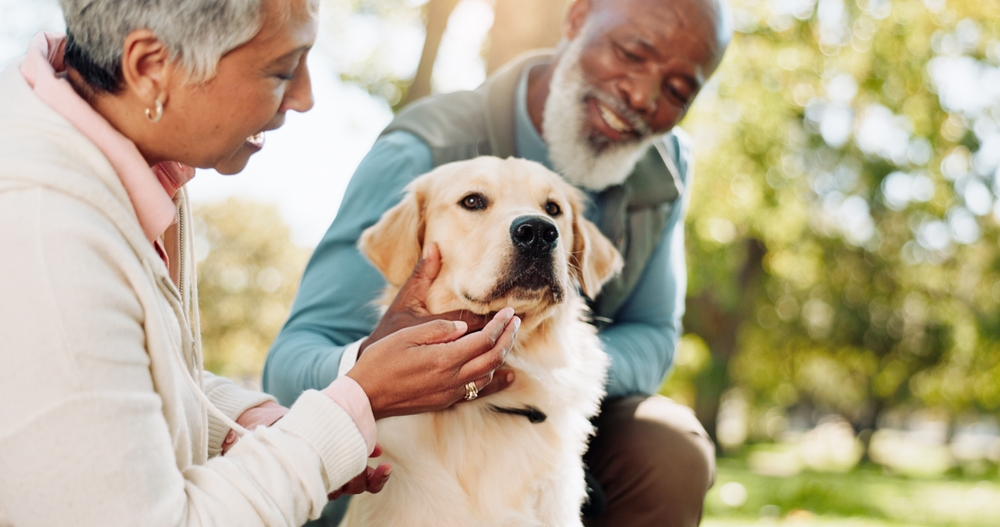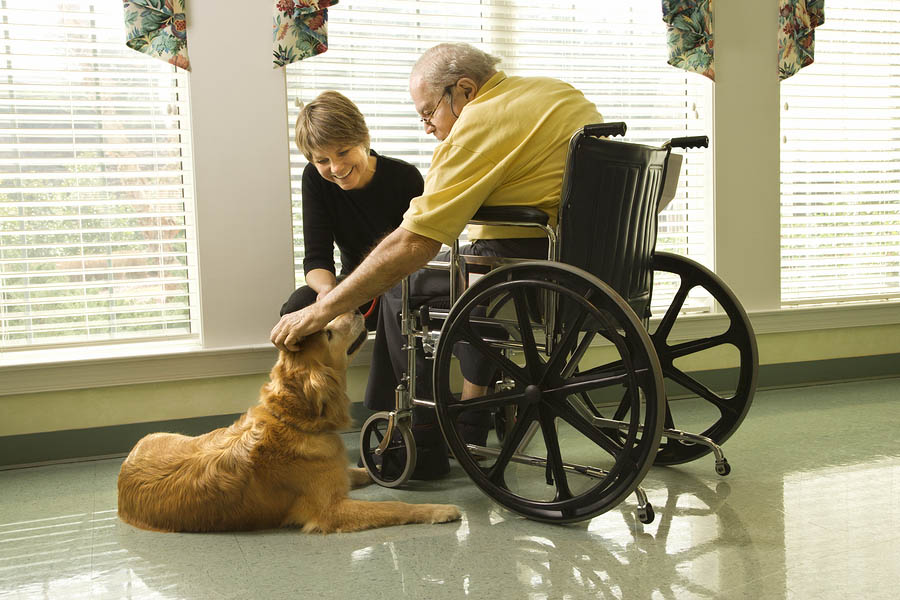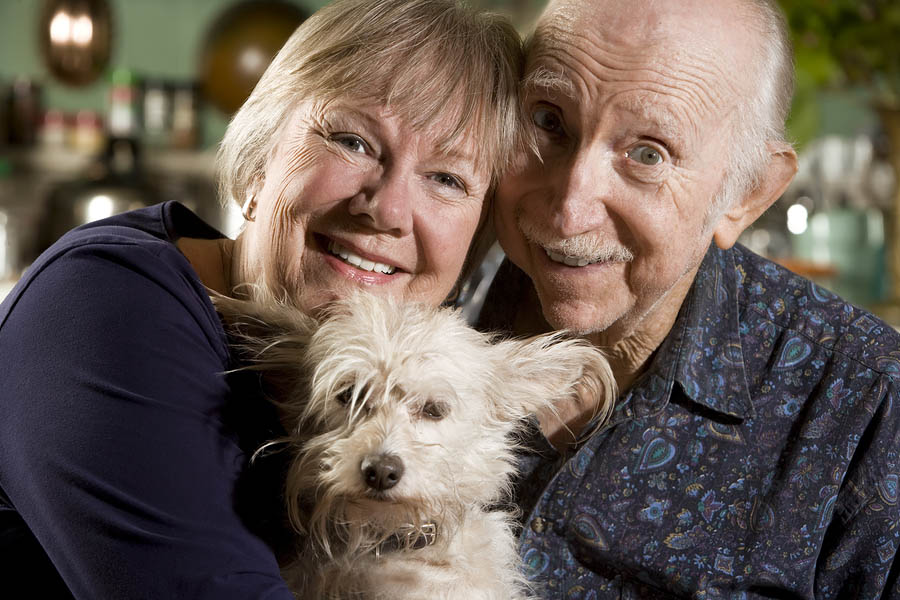Elderly Unable to Care for Pets: What to Do
Category:

When older adults become too ill, they sometimes have to sacrifice caring for their little fur babies. Luckily, there are steps to take when your loved one is unable to care for their pet. In this post, we’ll review what to do when Mom can’t take care of a dog anymore, Dad can’t take care of a cat anymore, and other dynamics.
Download Our FREE Live-In Care Guide
The Drawbacks of Pet Ownership for Older Adults
This post is not going to provide a list of reasons why seniors should not get a pet. After all, there are numerous benefits to a pet, such as companionship, improved mental health, and other benefits. However, we can’t ignore the cons of owning a pet. These include:
- Financial strain due to ongoing costs for food, grooming, veterinary care, and other necessities
- Physically demanding tasks, such as walking a dog, which can increase the risk of injury
- Increased risk for falls
- Significant time and care for a pet, including changing a litter box for cats
- Regular check-ups, vaccinations, and preventative medications
- Additional maintenance, such as frequent brushing
- Health and ability levels impeding the ability to properly care for a pet
What to Do When Caring for a Sick Person’s Pet Becomes Too Much
With the elderly unable to care for pets, it can sometimes create an extra burden for caregivers. More than likely, an older pet may also have an older pet with their own share of health issues. If it becomes too much, remember these key points:
- Give yourself grace. Offer yourself the same kindness you would show a friend or coworker going through a challenging time.
- Your love remains strong. Feeling tired or frustrated does not mean you love your pet any less; your emotions come from the situation, not your pet.
- Find support. Talk to trusted friends, family, or support groups who understand and can offer empathy and encouragement.
- Accept help. Let others assist with tasks like grooming, errands, or medication pickups to lighten your load.
- Prioritize self-care. Take time for yourself, whether it’s a bath, a haircut, or simply a quiet moment to recharge.
- Seek professional guidance. If overwhelmed, reach out to counselors or therapists experienced in pet-related grief and anticipatory loss.
- Consult your vet. Ask for resources like support groups, hospice-care options, or information about your pet’s condition to ensure their dignity and quality of life.
- Cherish moments with your pet. Spend quiet time together, strengthening the bond and expressing your love during this special phase.
How to Adopt an Elderly Person’s Pet
Of course, there are other ways to adopt a pet. Below are some options to take advantage of if you don’t necessarily have the time to care for a pet.
- Rehome them with a trusted family member, friend, or neighbor. This allows the pet to remain part of the owner’s life through visits and updates about its well-being.
- Transfer the pet to a reputable rescue organization. Verify that the group is state-licensed and adheres to high adoption standards. Look for organizations that charge an adoption fee, require a signed return agreement, and perform follow-ups to ensure the pet’s welfare. Use online resources to locate trustworthy local rescues.
- Consider temporary boarding while finding a new home. Visit the boarding facility to ensure it meets cleanliness and safety standards. Ask about the pet’s accommodations and the amount of playtime or recreation provided.
- Surrender the pet to an animal shelter as a last resort. Choose a shelter with a good reputation for cleanliness and proper management. Get recommendations from others who have adopted pets. When visiting, inquire about the shelter’s policies on euthanasia and how long pets are kept before adoption.
To learn about our home care services, contact our caregiving team today at 1-800-GRISWOLD or find a Caregiver near you.
Subscribe
Date: 2025-01-02
Category:


